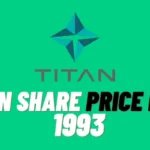Yes Bank Share Price From 2005. Yes Bank share price history from 2005 to 2023. The lowest and highest share price in history.

Yes Bank share Price History from 2005 to 2023
| Year | Share Price |
| 2005 | 14 |
| 2006 | 17 |
| 2007 | 34 |
| 2008 | 55 |
| 2009 | 11 |
| 2010 | 57 |
| 2011 | 68 |
| 2012 | 59 |
| 2013 | 109 |
| 2014 | 76 |
| 2015 | 107 |
| 2016 | 149 |
| 2017 | 284 |
| 2018 | 318 |
| 2019 | 236 |
| 2020 | 48 |
| 2021 | 18 |
| 2022 | 14 |
| 2023 | 22 |
Yes Bank Share Price in 2005 was 14 Rupees. Now in 2023 Yes Bank share Price is around 22 rupees.
The Highest share price of Yes Bank was 404 rupees and the lowest share price was 12 Rupees.
Also Read: Infosys Share Price History From 1993
About Yes Bank
Yes Bank was founded in 2004. Its headquartered in Mumbai, Maharashtra, India. It operates as a full-service commercial bank, offering a range of banking and financial services to retail and corporate customers. The bank provides services for deposits, loans, credit cards, foreign exchange, wealth management, and investment banking.
In recent years, Yes Bank faced significant challenges with its financial health. In 2020, the bank experienced a liquidity crisis and had to be bailed out by a consortium of banks. The Reserve Bank of India (RBI) took control of the bank’s operations and appointed an administrator to oversee its revival.
After the restructuring and capital infusion, Yes Bank’s financial position improved to some extent.
Fundamental details about Yes Bank:
- Financial Performance: Yes Bank has faced several challenges in recent years, including financial instability and regulatory issues. It experienced significant asset quality deterioration, which led to a sharp increase in non-performing assets (NPAs) and provisioning requirements. The bank’s financial performance has been impacted by these challenges.
- Management Changes: The RBI appointed a new CEO and implemented a reconstruction plan to stabilize the bank’s operations.
- Capital Raising: To address its capital requirements and strengthen its financial position, Yes Bank undertook various initiatives. These included a follow-on public offer (FPO) in July 2020 to raise funds from the market and secure investments from strategic investors and private equity firms.
- Restructuring and Asset Quality: As part of the reconstruction plan, Yes Bank underwent significant restructuring. It involved writing down certain bonds and converting them into equity, resulting in the dilution of existing shareholders’ stakes. The bank has been actively working on resolving its stressed assets and reducing NPAs to improve its asset quality.
- Regulatory Compliance: Yes Bank faced regulatory scrutiny for its practices and compliance issues. The bank had to strengthen its internal controls, risk management, and governance framework to meet regulatory requirements and rebuild trust among stakeholders.
Ans. Yes Bank Share Price in 2008 was 55 Rupees.
Ans. Yes Bank Share Price in 2005 was 14 Rupees.
Ans. Yes Bank share price in 2009 was around 11 Rupees.
Ans. The Highest share price of Yes Bank in history was 404 Rupees.




